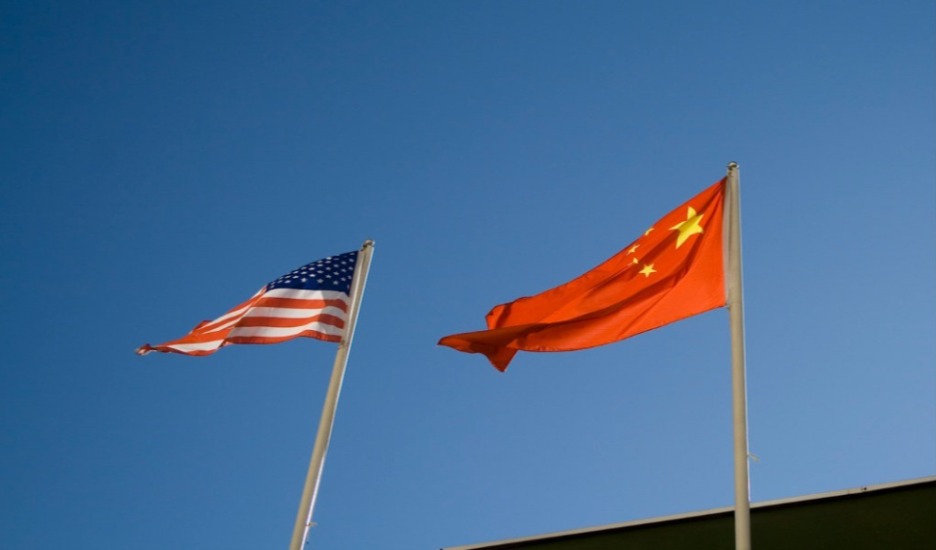One Less Thing to Worry About: Secretary of State Rex Tillerson Didn’t Actually Call for a Blockade of China’s South China Sea Islands
Earlier this month, Secretary of State Rex Tillerson made comments during his confirmation hearing that alarmed many China watchers since they seemed to call for something close to a naval blockade of Chinese reclaimed islands in the South China Sea. As I and others stated at the time the remarks came out, such a blockade would almost certainly lead to armed conflict with China.
Published by The Lawfare Institute
in Cooperation With

Earlier this month, Secretary of State Rex Tillerson made comments during his confirmation hearing that alarmed many China watchers since they seemed to call for something close to a naval blockade of Chinese reclaimed islands in the South China Sea. As I and others stated at the time the remarks came out, such a blockade would almost certainly lead to armed conflict with China. But having looked more carefully at his testimony as well as his answers to written questions from Senator Ben Cardin, I have come to the conclusion Tillerson never meant to suggest such drastic action, at least not without some new Chinese provocation or aggression.
Here is Tillerson’s full answer in response to a question from Colorado Senator Cory Gardner, as gleaned from the C-Span transcript.
GARDNER: AND YOU WOULD SUPPORT A MORE AGGRESSIVE POSTURE IN THE SOUTH CHINA SEA?
TILLERSON: WE HAVE TO SEND CHINA A CLEAR SIGNAL THAT THE ISLAND BUILDING STOPS AND SECOND YOUR ACCESS TO THOSE ISLAND IS ALSO NOT ALLOWED.
I encourage interested readers to watch the video of this testimony (starting around the 1:05 mark) along with Gardner’s reaction to Tillerson’s answer. Tillerson was giving a long-winded answer when Gardner cut in to seek an answer from Tillerson on whether he would support something more aggressive than the Obama Administration. Tillerson’s answer is short and perfunctory, almost as an aside. Gardner barely reacted to the answer and moved right along to his next topic. This makes me think neither man thought the remark significant.
My guess is that Tillerson misspoke, or at least did not state completely his full intended answer to Gardner’s question. I base this on watching the video, and also upon reviewing the written answers that Tillerson provided to Senator Ben Cardin after his testimony but prior to his confirmation vote. (These answers have not been officially released, but a copy was provided to Climate Wire, whose reporter confirmed that they were provided by Cardin’s staff.) Here is Tillerson’s written answer to Cardin’s follow up question on the South China Sea.
[..]China cannot be allowed to use its artificial islands to coerce its neighbors or limit freedom of navigation or overflight in the South China Sea. The United States will uphold freedom of navigation and overflight by continuing to fly, sail, and operate wherever international law allows. If a contingency occurs, the United States and its allies and partners must be capable of limiting China’s access to and use of its artificial islands to pose a threat to the United States or its allies and partners. The United States must be willing to accept risk if it is to deter further destabilizing actions and reassure allies and partners that the United States will stand with them in upholding international rules and norms. [Emphasis added]
This written answer’s discussion of limiting China’s “access to and use of its artificial islands” uses much of the same language as Tillerson’s oral testimony but with a clear difference. In his written answer, Tillerson is clearly speaking of denying China access “if a contingency occurs” and the artificial islands “pose a threat to the United States or its allies and partners.”
From a legal and policy point of view, ensuring the U.S. military is “capable” of denying China access to the artificial islands “in a contingency” where there is a “threat” is a wholly different situation than the blockade many of us read his oral testimony to call for. This sounds very much like ensuring the U.S. has the ability to use armed force to deny access on the grounds of in either sole or collective self-defense to a Chinese “threat.” It is not illegal and it would not “start” a war because it would probably only be used if a war had already started due to some Chinese action.
Read in this light, Tillerson is offering a slightly but not dramatically more aggressive posture on these issues than the Obama administration. He seems to be saying the U.S. must be willing to use force, or at least threaten to use force, in order to reassure allies and deter Chinese aggression, or in reaction to Chinese aggression. Alternatively, he might be arguing for the U.S. to reduce or eliminate the strategic threat of the artificial islands by showing to the Chinese how easily and quickly the U.S. could cut off those outposts from the Chinese mainland’s support.
All of this seems both plausible and reasonable. It is also far less scary than his almost offhand remarks during his oral testimony. I am told there are other similar answers in his responses to other senators’ questions (please send them to me if you have them!). But based on what I have reviewed for now, I am willing to put the “Tillerson blockade” question to rest so we can all have one less thing to worry about in the already frenetic first three weeks of the new administration.


.jpg?sfvrsn=5a43131e_9)


